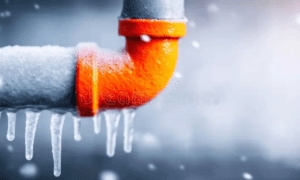Seasonal allergies can be overwhelming, particularly for individuals who are sensitive to pollen, dust, mold, or pet dander. Each year, as spring and fall arrive, millions of people experience symptoms such as sneezing, watery eyes, congestion, and fatigue. What many people do not realize is that their home environment plays a significant role in triggering or alleviating these symptoms. Indoor air quality has a direct impact on health, and HVAC systems act as the primary line of defense against airborne irritants. A well-maintained HVAC system can filter pollutants, regulate humidity, and create a cleaner breathing space. We will explore how HVAC services can actively reduce allergy triggers and make homes healthier during seasonal changes.
The Role of HVAC Services in Allergy Prevention
- Air Filtration and Allergen Removal
One of the most effective ways HVAC systems protect against seasonal allergies is through filtration. Air filters are designed to capture microscopic particles, including pollen, dust mites, pet dander, and mold spores. Over time, these allergens circulate throughout the air, exacerbating allergy symptoms. With high-quality filters, HVAC systems trap these particles before they reach the living space. For individuals with severe sensitivities, upgrading to HEPA filters can make a significant difference, as these are capable of capturing nearly all airborne irritants. Regular HVAC service in Phoenix, AZ, ensures that these filters are properly inspected, replaced, and maintained, allowing homeowners to benefit from cleaner indoor air and stronger protection against seasonal allergies.
However, simply having filters is not enough—regular replacement is crucial. When filters are clogged, they become less effective and may even allow allergens to recirculate. HVAC services ensure filters are inspected and replaced at the right intervals, reducing exposure to allergy triggers. By keeping the air cleaner and free from harmful particles, families can enjoy a healthier home environment throughout the allergy season.
- Humidity Control and Mold Prevention
Humidity plays a crucial role in managing allergies. When indoor humidity levels are too high, mold and dust mites thrive, exacerbating allergy symptoms. Conversely, when the air is too dry, nasal passages can become irritated, leading to increased discomfort. HVAC systems equipped with humidifiers and dehumidifiers help maintain the optimal indoor humidity level, usually between 30% and 50%. Professional HVAC services adjust and monitor these systems to ensure balance, preventing the growth of allergens while maintaining a comfortable air quality.
In regions with hot summers and heavy pollen, such as Phoenix, excess humidity combined with poor ventilation can create an ideal breeding ground for mold inside ducts and vents. By scheduling regular HVAC maintenance, homeowners can significantly reduce this risk. Proper humidity control not only protects against mold spores but also improves breathing, making allergy season less harsh for those affected.
- Duct Cleaning and Indoor Air Quality
Air ducts are often overlooked when discussing seasonal allergies, but they play a major role in indoor air quality. Dust, pollen, and other allergens can accumulate inside the ducts, circulating throughout the home with every HVAC system run. Without cleaning, ducts become reservoirs of allergens, spreading them into every room. Professional HVAC services include duct inspection and cleaning, which removes accumulated debris and prevents allergens from being reintroduced into the air. This process also improves airflow efficiency, reducing strain on the system.
For allergy sufferers, clean ducts can make a noticeable difference in symptoms, as fewer irritants are carried through the ventilation system. Additionally, properly sealed ducts prevent outside contaminants from entering the home. By investing in regular duct maintenance, households can maintain cleaner indoor environments, reduce allergy triggers, and create a healthier breathing atmosphere year-round.
- Ventilation and Fresh Air Circulation
Another important factor in allergy protection is ventilation. Homes that are tightly sealed for energy efficiency can sometimes trap allergens inside, leading to poor air circulation. HVAC systems equipped with ventilation controls ensure that stale air is replaced with fresh outdoor air while filtering out irritants. Services may also include the installation of energy recovery ventilators (ERVs), which enhance airflow while maintaining energy efficiency. With proper ventilation, allergens such as cooking smoke, dust, and pet dander are reduced, keeping the home fresher.
Additionally, HVAC systems prevent outdoor allergens from entering unfiltered, as they process incoming air through filtration before distributing it indoors. For those living in areas with high pollen counts, this feature can be especially valuable during peak allergy seasons. HVAC services ensure that ventilation systems are working correctly, creating a steady balance of fresh air while minimizing exposure to irritants that aggravate seasonal allergies.
- Seasonal Maintenance and System Efficiency
Consistent maintenance is crucial for keeping HVAC systems effective in combating allergies. During seasonal changes, pollen and environmental factors shift, increasing the likelihood of allergens infiltrating homes. HVAC services include thorough inspections, coil cleaning, filter replacements, and adjustments to ensure peak performance. A system running at full efficiency can better regulate indoor air quality, providing reliable protection against allergens and other pollutants. Neglecting maintenance allows dust buildup, microbial growth, and decreased airflow, all of which worsen allergy symptoms. By scheduling professional tune-ups before the spring and fall seasons, homeowners can prepare their systems for the peak allergy months.
Seasonal allergies can significantly impact comfort and well-being, but adopting the right approach to indoor air quality can help minimize symptoms. HVAC systems play a vital role in reducing exposure to allergens by filtering out harmful particles, maintaining a balanced humidity level, cleaning ducts, improving ventilation, and ensuring consistent system efficiency. Each of these services contributes to a healthier indoor environment, allowing households to breathe easier even during peak allergy seasons. By investing in regular services and maintenance, homeowners not only safeguard their systems but also enhance their quality of life. Seasonal allergies may never fully disappear, but with the support of a well-maintained HVAC system, their impact can be drastically reduced, creating a cleaner, healthier, and more comfortable home.



































